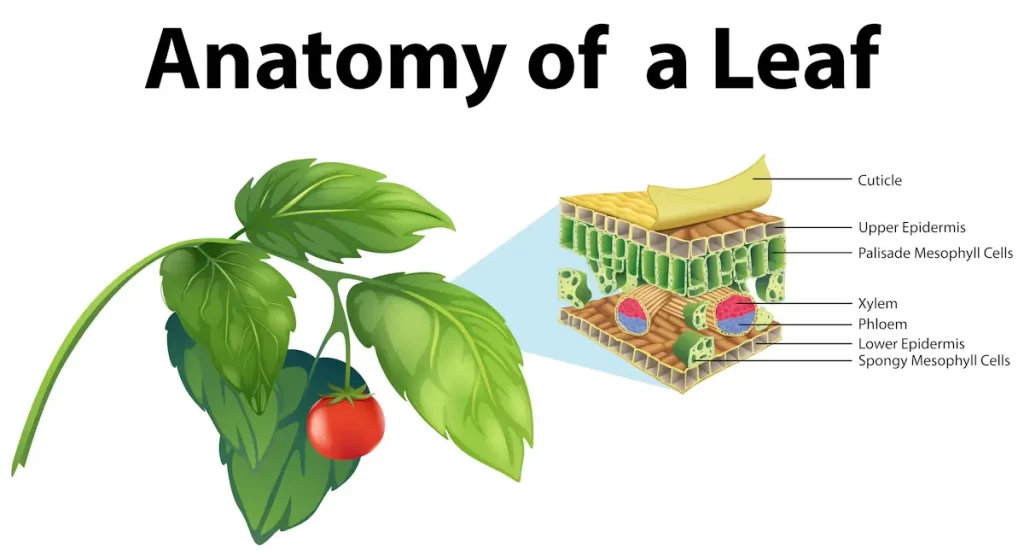Feeling tired, sluggish, or noticing unusual symptoms? Nutrient deficiencies might be the reason. Over 2 billion people worldwide lack key vitamins and minerals, affecting their daily health.
Thank you for reading this post, don't forget to subscribe!This article will explain signs, risks, and simple fixes to stay healthy. Keep reading to take charge of your well-being!
Key Takeaways
- Over 2 billion people globally have nutrient deficiencies, causing symptoms like fatigue, hair loss, and brittle nails.
- Common deficiencies include Vitamin D (bone pain), Iron (fatigue), Vitamin B12 (nerve damage), and Magnesium (muscle cramps).
- Poor diets, medical conditions like celiac disease, or malabsorption issues lead to low levels of key nutrients.
- Fix deficiencies by eating whole grains, dark leafy greens, fortified cereals, organ meats, or taking supplements as needed.
- Blood tests can detect nutrient shortages early; consult a doctor for proper diagnosis and treatment plans.
Common Signs of Nutrient Deficiencies
Your body often shows signs when it lacks key nutrients. Paying attention to these signals can help you address problems early.
Severe hair loss
Hair loss can signal a nutrient deficiency. Iron deficiency, the most common worldwide, often leads to thinning hair or shedding. Zinc plays a big role too—low levels may cause telogen effluvium, where more hairs fall out than usual.
Be careful with supplements. Too much selenium or Vitamin A might worsen hair loss instead of helping it. Eating whole grains, organ meats, dark leafy greens, and fortified cereals can help restore balance and support healthy follicles.
Brittle hair and nails
Thin, weak strands or cracked nails can signal iron deficiency. Low iron affects red blood cells, reducing oxygen delivery to hair roots and nail beds. This leads to breakage and slow growth.
Zinc deficiency also plays a role. It disrupts keratin production, which strengthens hair and nails. Adding foods like organ meats or dark leafy greens—or taking supplements—may reverse the damage over time.
Vitamin D deficiency might add to the issue, as low levels link directly to thinning hair in many people.

Mouth ulcers or cracks at the corners of the mouth
Mouth ulcers or cracks in the corners often signal vitamin deficiencies. Lack of Vitamin B12 can harm DNA production, leading to sores on mucous membranes. Vitamin B2 deficiency may also contribute to skin issues and a sore throat alongside these cracks.
Severe niacin deficiency, linked to Pellagra, can result in painful mouth ulcers too. Symptoms like redness or irritation around the lips might appear. Adding foods rich in dark leafy greens, dairy products, and organ meats helps restore these vital nutrients.
Bleeding gums
Bleeding gums may point to a vitamin C deficiency. This vital nutrient supports the health of your blood vessels and tissues. Without enough of it, gum health diminishes, leading to swelling or bleeding during brushing or flossing.
Increasing vitamin C intake can help improve this issue over time. Foods rich in vitamin C include kale, bell peppers, kiwis, and citrus fruits like oranges. These foods help maintain oral health and strengthen the immune system.
Next: Bone pain or muscle weakness…
Bone pain or muscle weakness
Bone pain and muscle weakness often signal a vitamin D deficiency. This nutrient helps the body absorb calcium, which strengthens bones. Without enough vitamin D, bones become soft or brittle over time—leading to pain and possible fractures.
Fatigue can also appear alongside weak muscles, making daily tasks harder.
Women are especially at risk due to common deficiencies in vitamin D, calcium, iron, and B vitamins like B12. Foods like fatty fish, fortified cow’s milk, or canned tuna may help boost levels.
For those with severe deficiencies or conditions like celiac disease that hinder absorption, supplements might be necessary for better bone health.
Poor night vision
Poor night vision can mean you struggle to see in dim light. This issue is often linked to vitamin A deficiency. Without enough vitamin A, your eyes lack the key nutrients needed for proper function.
It can lead to a condition called night blindness.
Severe cases may cause corneal ulcers or permanent vision loss if left untreated. Dark leafy greens, organ meats, and dairy products are great sources of vitamin A. Including these in your balanced diet helps maintain eye health and avoid such problems.
**Risks Associated with Nutrient Deficiencies…**
Risks Associated with Nutrient Deficiencies
Lacking nutrients can harm your body in many ways. It may lead to serious health problems over time if not addressed.
Weakened immune system
A weak immune system leaves the body open to more infections. Nutrient deficiencies, like low levels of vitamins A, C, D, and E or minerals such as zinc and iron, harm immunity. For example, a vitamin C deficiency can slow healing from injuries.
Iron is vital for forming red blood cells that carry oxygen—without it, the body struggles to fight illnesses.
Poor diets often lack these essential nutrients. People with conditions like celiac disease may struggle to absorb them properly too. Boosting your nutrient intake through whole grains, dark leafy greens, fortified cereals, or dairy products supports better defense against sickness.
Supplements help fill gaps but talk with a doctor first if symptoms persist!
Chronic fatigue and low energy
Fatigue and low energy can result from nutrient deficiencies like Vitamin D, iron, Vitamin B12, and calcium. Low iron levels often reduce red blood cells, making you feel exhausted.
Vitamin D deficiency impacts bone health and weakens muscles, leaving your body drained.
Studies show that Vitamin D supplements can lower autoimmune disease risks by 22%. Magnesium deficiency may lead to muscle cramps and poor sleep—further worsening fatigue. Adding whole grains, fortified cereals, dark leafy greens, or organ meats into meals supports energy production naturally.
Poor cognitive function
Iron deficiency can make it hard to focus and think clearly. It lowers oxygen levels in the brain by reducing red blood cells. This affects memory, learning, and decision-making. Many children with iron deficiency show slower developmental progress.
Adults may feel forgetful or struggle to solve problems.
Iodine is another key nutrient tied to brain health. During pregnancy, iodine deficiency can cause severe cognitive delays in babies. These effects are often permanent and impact both IQ and mental development.
Foods like fortified cow’s milk or seafood help prevent these issues by providing enough iodine for a healthy mind.
Increased risk of chronic diseases
Nutrient deficiencies can raise the chance of long-term illnesses. Low vitamin D levels may weaken bone health, leading to conditions like osteoporosis. Poor intake of omega-3 fatty acids could increase inflammation, contributing to heart disease.
A lack of essential vitamins and minerals also ties to problems like diabetes or metabolic syndrome. Nearly 60% of adults in the U.S. already live with at least one chronic illness, such as these diet-related issues.
Staying mindful of food sources like fortified cow’s milk or dark leafy greens can help reduce risks.

Causes of Nutrient Deficiencies
Poor eating habits and specific health issues often lead to missing key nutrients. Lifestyle choices, like restrictive diets or stress, may also play a major role.
Poor dietary habits
Skipping key foods leads to nutrient deficiencies. Over 90% of adults fail to get enough vitamins D and E daily, causing fatigue and weakened immunity. Diets missing whole grains, dark leafy greens, or fortified cereals result in low iron, calcium, and magnesium levels.
Relying on processed foods worsens the problem. These often lack essential vitamins like B12 and folic acid. Plant-based diets without proper planning may lead to vitamin B6 or protein gaps too.
Healthy choices—like dairy products or canned tuna—are crucial for balanced nutrition.
Malabsorption issues
Malabsorption makes it hard for the body to take in nutrients. This can lead to serious nutritional deficiencies. Conditions like celiac disease, Crohn’s disease, and cystic fibrosis often cause this problem.
Pancreatic insufficiency and bile duct blockages also play a role.
People with malabsorption may suffer from vitamin D deficiency or iron deficiency due to poor absorption. Symptoms include fatigue, weight loss, brittle bones, and bleeding gums. Fortified cereals and cow’s milk can help improve vitamin levels but may not be enough for some cases.
Certain medical conditions
Some medical conditions make nutrient deficiencies worse. Celiac disease, for example, limits the absorption of vitamins and minerals like vitamin B12, iron, and folic acid. Thyroid disease can also impact how your body uses nutrients such as iodine or selenium.
Autoimmune diseases may cause inflammation that disrupts digestion. Pregnant women often need more nutrients like folate to prevent neural tube defects in babies. Medications—like diuretics—can drain calcium and magnesium levels over time too.
Lifestyle factors
Unhealthy lifestyle choices often lead to nutrient deficiencies. Smoking and heavy alcohol use can block your body’s ability to absorb key vitamins, like vitamin C and magnesium. Skipping balanced meals or eating too much fast food reduces the intake of whole grains, dark leafy greens, fortified cereals, and dairy products—foods rich in essential vitamins.
Stress affects nutrient levels too. High stress increases your need for magnesium while decreasing it in the body. Following vegan diets without proper planning may cause iron deficiency or a lack of vitamin B12 since animal products are primary sources.
Poor sleep habits also disrupt how nutrients fuel energy levels.
Key Nutrient Deficiencies and Their Impacts
Certain nutrient deficiencies can harm your health surprisingly—explore how lacking key vitamins and minerals affects your body.
Vitamin D: Bone pain and weakened immunity
Low vitamin D can cause bone pain and muscle weakness. It happens often with older adults since few foods naturally provide this nutrient. Without enough, bones become brittle, leading to fractures or bone loss over time.
This deficiency also weakens the immune system. Without proper levels of Vitamin D, the body struggles to fight infections. Adults up to 70 need 600 IU daily, and those over 71 need 800 IU.
Foods like fortified cow’s milk or cereals help raise levels. Supplements are another option for people who don’t get enough from their diet alone.
Iron: Fatigue and shortness of breath
Lack of iron impacts your body’s ability to make red blood cells. These cells transport oxygen, and without enough, you may feel constantly tired or experience shortness of breath.
Symptoms can also include cold hands, frequent headaches, and pale skin.
Women under 50 need about 18 mg daily; after 50, they require only 8 mg. Foods like organ meats, dark leafy greens, whole grains, and fortified cereals help meet this need. Severe cases may require supplements or medical advice to restore balance quickly.
Vitamin B12: Nerve damage and anemia
Vitamin B12 is vital for healthy nerves and red blood cells. A deficiency can lead to nerve damage, causing numbness, tingling, or even memory problems. It may also trigger anemia, making you feel weak and tired.
Adults need 2.4 mcg daily from foods like organ meats, dairy products, or fortified cereals. Those with celiac disease or other absorption issues are at higher risk of vitamin b12 deficiency.
Early signs should never be ignored to avoid long-term harm to your brain and body.
Calcium: Irregular heartbeat and brittle bones
Low calcium can cause brittle bones and irregular heartbeat. Adults need 1,000 mg daily, while women over 50 should aim for 1,200 mg to prevent bone disease. Calcium helps your heart beat properly and keeps bones strong.
Dairy products like milk and cheese are rich sources. Dark leafy greens and fortified cereals also boost intake. Without enough calcium, bones weaken over time, leading to fractures or osteoporosis.
Muscle cramps may happen too if levels drop too low.
Magnesium: Stress and muscle cramps
Magnesium helps control stress and reduces the chances of muscle cramps. It plays a major role in managing the body’s stress response. A lack of magnesium can lead to tight muscles, twitching, and even high blood pressure.
Over 50% of Americans don’t get enough magnesium daily. This deficiency may trigger mental health issues like anxiety or depression. Foods such as dark leafy greens, whole grains, nuts, and fortified cereals help boost magnesium levels naturally.
Supplements could also be an option if your diet falls short.

How to Fix Nutrient Deficiencies
Eat a balanced diet, stay active about your food choices—small changes can make a big difference. Read more for detailed tips!
Dietary adjustments
Add more whole grains, dairy products, and dark leafy greens to meals. These foods provide essential vitamins and minerals like calcium, magnesium, and iron. Orange vegetables like carrots can boost vitamin A levels for better vision.
Choose fruits rich in vitamin C to prevent bleeding gums. Fortified cereals are great for filling gaps in nutrient deficiencies such as iron or folate deficiency. Organ meats contain high amounts of vitamin B12—helpful for red blood cells and nerve health.
Incorporating fortified foods
Fortified foods, which contain extra vitamins and minerals, help fight nutrient deficiencies. Common examples include breakfast cereals, milk, bread, and fruit juice.
Fortified cereals provide iron, vitamin B12, and folic acid—great for improving red blood cells and reducing anemia risks. Milk is often enriched with vitamin D to support bone health and prevent fractures.
Fruit juices may contain added calcium to strengthen teeth and bones. Whole grains like fortified rice or pasta can boost magnesium levels, easing muscle cramps caused by deficiency.
Choose these items wisely to ensure a balanced diet full of essential vitamins and minerals without overloading on sugar or salt.
Using high-quality supplements
Adding high-quality supplements fills gaps that diets sometimes miss. Many people struggle to get enough vitamins and minerals, even with fortified foods or a balanced diet. Supplements like vitamin D3, magnesium, or iron help support bone health, energy levels, and stress management.
Certain groups benefit more from supplementation. Older adults often take calcium for strong bones, while women of childbearing age may need folic acid (vitamin B9) to aid cell growth.
Studies show non-Hispanic whites and those with higher education use supplements most often. Always choose reputable brands for safety and efficacy in addressing nutrient deficiencies effectively.
Seeking professional medical advice
Talk to a healthcare provider if you think you have nutrient deficiencies. Symptoms like fatigue, bleeding gums, or brittle nails can point to issues needing attention. Diagnosing these problems often requires blood tests or screenings.
Doctors may recommend supplements, such as vitamin D for bone health or iron for red blood cells. They might also address underlying causes like celiac disease, which affects absorption of nutrients from foods like whole grains and dairy products.
Nutrient Deficiency Screening Tests
Blood tests are the most common way to check for nutrient deficiencies. They measure levels of vitamins and minerals like vitamin D, iron, and B12 in your blood. Doctors may recommend these tests if you feel constantly tired or notice signs like bleeding gums or brittle nails.
Some conditions—like celiac disease—can make it harder for your body to absorb nutrients. Screening can help find deficiencies caused by such issues. Tests can also identify anemia by checking red blood cells or diagnose glucose-related problems that impact appetite and energy levels.
Early detection is key to maintaining good health.
Conclusion
Eating the right foods can prevent nutrient deficiencies and their risks. Small changes, like adding whole grains or dark leafy greens, make a big impact. If unsure, consult a doctor for proper testing and advice.
Stay aware of your body’s needs—good health starts with smart choices!
